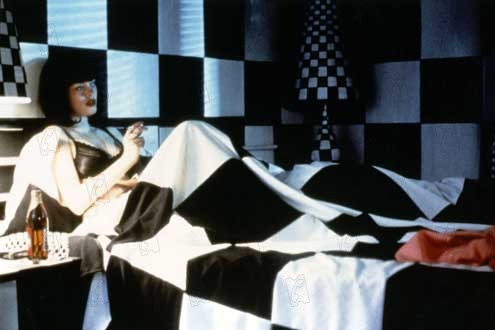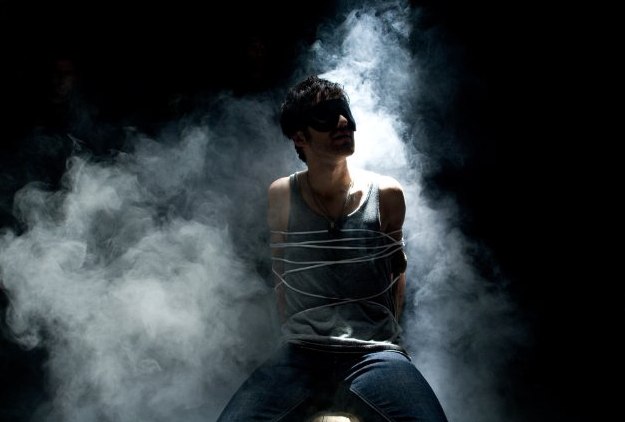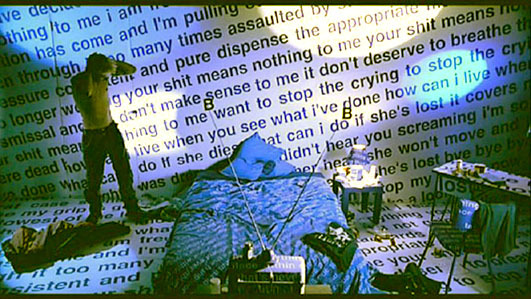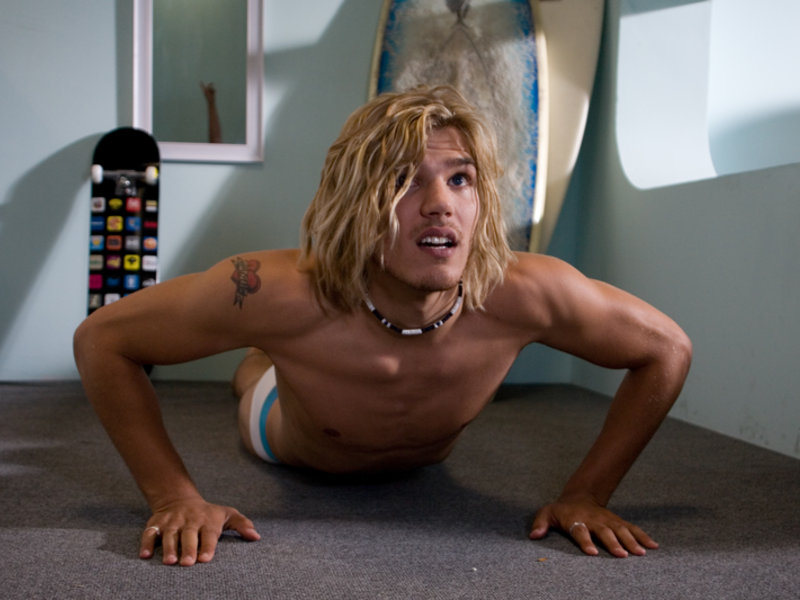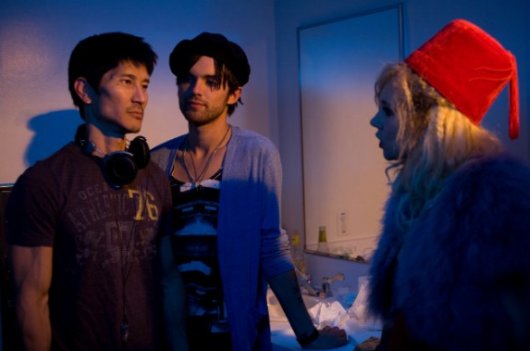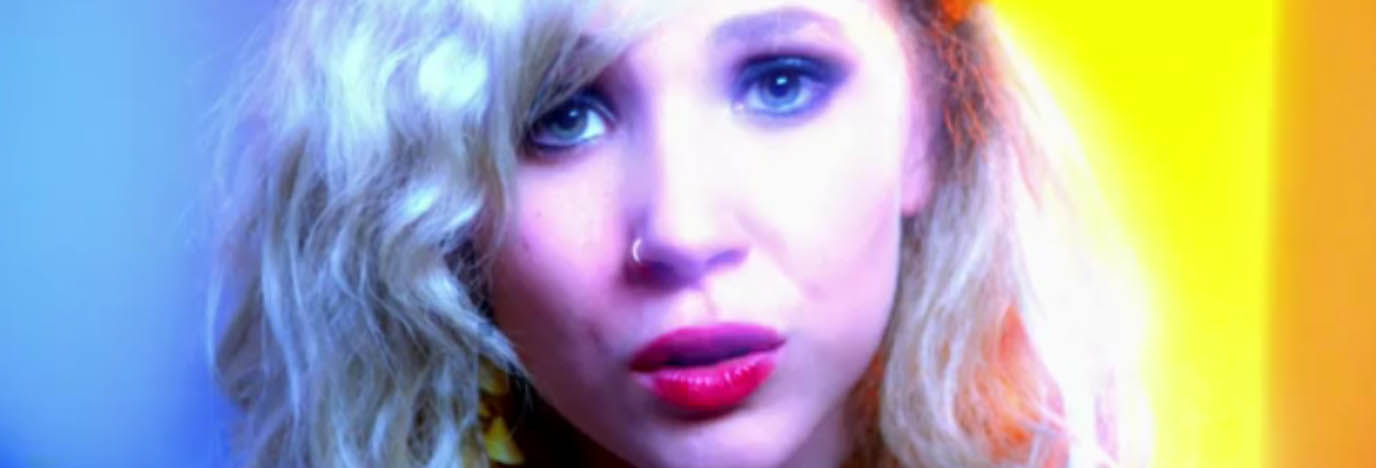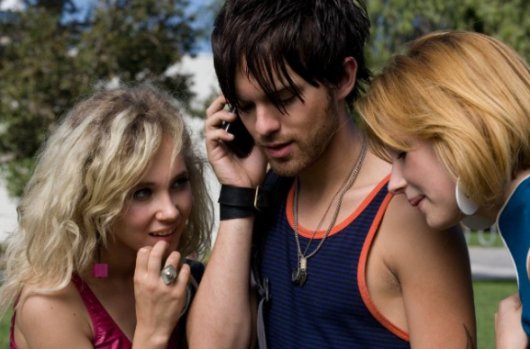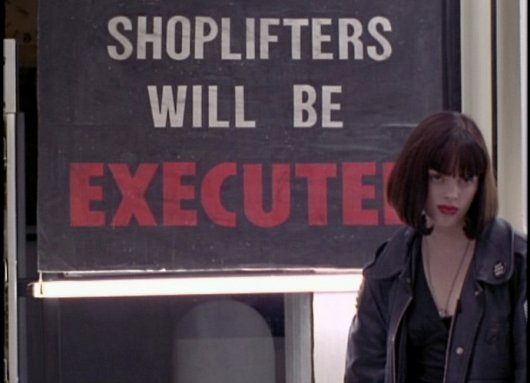 FILM
FILM In Which Gregg Araki Maintains A Physical Trajectory
 Monday, November 10, 2014 at 10:02AM
Monday, November 10, 2014 at 10:02AM 
Better Off
by MIA NGUYEN
White Bird in a Blizzard
dir. Gregg Araki
91 minutes
Most of White Bird in a Blizzard has the style and pace of a lucid dream sequence. In this film, which was adapted from a novel by Laura Kasischke, director Gregg Araki revisits his niche focus: adolescence. Employing 1980s elements to paint the scene, he also incorporates romantic pastel color schemes to illuminate the mediocrity of suburbia. Araki develops strong connections with his characters and creates a mystery that is both alluring and magnetic.
Kat (Shailene Woodley) comes home from school one day to discover that her mother has disappeared. Kat speculates that her mother grew tired of passing the butter and cooking dinner for her father. She doesn’t expect for her mother to return and thinks she may be better off.

Eve (Eva Green), Kat's mother, is a neurotic and psychotic housewife. In some scenes, she competes with her daughter's beauty. She makes a game out of it when Kat starts dating. Except for a flashback in which the two of them play cat-and-mouse under a white linen sheet, there isn't much of an emotional bond between the mother-daughter pair.

Kat's father, Brock (Christopher Meloni) doesn't offer much value to his wife's happiness or to his marriage. His presence makes his wife want to vomit. It's suspected that the last time the two had sex was when Kat was conceived. Their loveless and sexless marriage is drier than a bottle of gin.
Kat discovers sexual frustrations of her own. After shedding her awkward butterball appearance, Kat experiments with being a seductress. She discovers the power of sex after losing her virginity to the boy next door, Phil (Shiloh Fernandez). Afterwards, she yearns for it every second and tries to influence him to follow suit.

Soon after her mother’s disappearance, Phil halts all sexual advances altogether, but closely identifies himself as her boyfriend. Phil can be easily be compared to a Neanderthal version of James Dean. He's a chainsmoker who doesn't add much to the conversation.
Kat doesn’t hesitate for a second to find a way to fulfill her carnal desires. She shows up on Detective Scieziesciez’s (Thomas Jane) doorstep to seduce him in a skin-tight purple dress. His last name sounds like someone trying to say "sleazy" after having one too many.

During her college breaks, she invites herself over for more coital exchanges with the detective. Years have gone by since her mother's disappearance, and her father appears to be the sole suspect, but there isn't enough evidence to prove him guilty.
Overall, this coming-of-age story captures the emotional and physical trajectory of sexual and gender identity, but leaves the audience more confused with their own spatial awareness. Araki's plot twist resembles the feeling of getting up too fast, feeling dizzy, and forgetting where you are.
Mia Nguyen is the features editor of This Recording. You can find her website here.

"Pills I Swallow" - The Twilight Sad (mp3)
"I Could Give You All That You Don't Want" - The Twilight Sad (mp3)

 gregg araki,
gregg araki,  mia nguyen
mia nguyen 






























